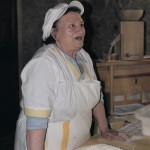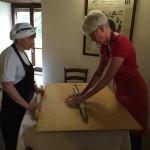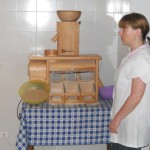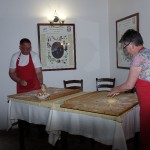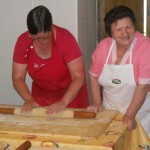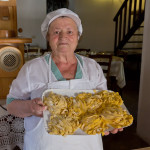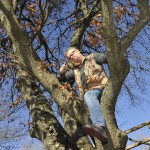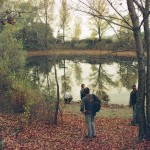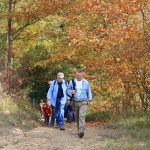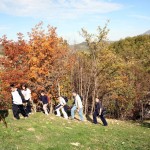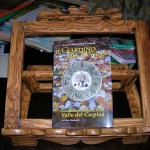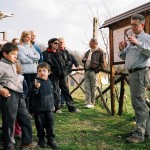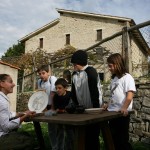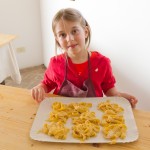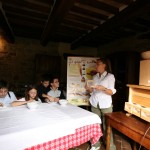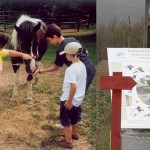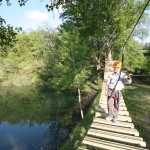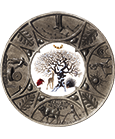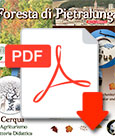School on the Farm

La Cerqua, besides being a production unit of “high quality healthy products” and “a suitable quality living space” is also a place preserving the historical memory of its “bioregion”. A geographical place recognizable for its unique soil, climate, flora and fauna characteristics as well as for its human culture, which has developed over time in harmony with all this.
In this respect guests, groups of children and school groups visiting the farm can book special educational courses concerning the natural features of the territory (Leaf Peeping in the Forest of Pietralunga) and/or the rural traditions (Knowledge and Tastes of the Carpina Valley).
Educational workshops for adults and families:
Cooking lessons
Bread, pasta and cake making using traditional hand methods; the preparation takes place in the kitchen laboratory of the farm; participants are not only spectators, but “actors”, they are welcomed by Silvana, speaking English, to her kitchen workshop and by her mother Raffaella, speaking the international body language. After wearing the “parananza”, the typical service apron, the two cooks illustrate the various types of cereals used in the farm for the production of pasta, bread and pastries: wheat, spelt, barley and oats.
MILLING: cereals are ground in the traditional stone mill and sieved in the “buratto”, a sieving tool allowing to obtain different types of flour (white, semi-full, whole meal) and bran (used as animal food).
PREPARING THE DOUGH (by hand on a pastry board): guests stand opposite their own board (made only from wood), on which eggs and flour have been placed. Following the clear instructions given by the two cooks guests mix the flour and eggs with water to obtain a dough that they knead until getting the right consistency.
ROLLING THE DOUGH OUT: (by hand, with a rolling pin): the dough is rolled out with a wooden rolling pin (easily available in most local tooling shops). Mamma Raffaella will explain the several steps to obtain pasta sheets of suitable thickness, reproaching delicately those who do not perform the correct movements!
CUTTING the sheets of pasta (by hand): the sheets thus obtained can be cut into the most common local pasta shapes and sizes: tagliolini, tagliatelle, pappardelle, straccetti, ravioli etc.
COOKING and DRESSING the pasta: Silvana and Raffaella will give guests details about the times and ways for cooking the different types of pasta, mainly focusing on the dishes to be prepared for the evening meal.
At the end of the demonstration guests are offered a DRINK and receive a CERTIFICATE of attendance together with a BOOK containing local traditional recipes; and best of all, everything ends with a delicious DINNER, based on typical local dishes, where the main ones are obviously those prepared with the freshly-made pasta!!
Leaf Peeping
Pietralunga is a harmonious succession of hills and valleys covered with dense oak forests, the best way to know this territory and get closer to its wild spirit and multi-coloured aspects is to enjoy short but relevant nature walks, under the guide of a leaf peeping expert.
It means observing nature through the keyhole by participating to a naturalistic educational path whose main objective is to identify the elements of a landscape by quality parameters.
Itineraries:
a) Short walks (2-3 km) to suit everyone, with relevant naturalistic objectives
1)Percorso NaturOlistico del Giardino del Mago -> Map
2) Sentiero Natura di Candeleto -> Map
3) Bosco ripariale e cascatelle di Coldipinzo -> Map
b) Medium-distance walks (5-6 km), despite being easy they require some training.
1) Strada Romana di Casalecchi -> Map
2) Traccia del Drago -> Map
3) Anello dei Monti del Vento – Map
c) Long distance walks (10-12 km, 4/5 hours either with packed lunch, lunch at the farm or at a country Inn)
1) Anello di Castelfranco -> Map
2) Anello di Castelguelfo -> Map
3) Anello Carpini-San Faustino -> Map
Workshops for children and students:
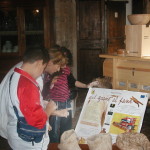 The valley of ancient crafts
The valley of ancient crafts
A journey back in time: as pilgrims do, you start from the former monastery of San Salvatore, then you continue with a short walk through the fields and end by playing as an artisan of the past…
- 🍂– in the peasant’s workshop (from hazelnuts to … homemade nutella; from fruit … to jams and marmalades);
- 🍂-in the miller’s workshop (from wheat …to bread);
- 🍂– in the potter’s workshop ( from mud to…ceramics)
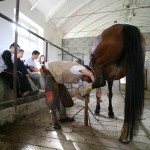 The Valley of silence: the animal garden
The Valley of silence: the animal garden
Short walk among the shelters of different species of animals on the farm (signed by specific illustrative billboards):
-the yard, the pond and the henhouse (geese, ducks, chickens, turkeys, guinea fowls);
-the oak grove and the pigsty (pig)
-the meadow, the sheepfold (sheep) and the old stone quarry (goats).
A discreet guide reveals, step by step, as if by magic, the secrets of each of them. Grand finale at the paddocks and stables: (donkeys and horses), where guests can take active part in an amusing unusual job consisting in taking hay and straw from the barn, giving some water, cleaning the harness and entering the exciting world of horses: brushing, saddling and assisting the blacksmith in shoeing them.
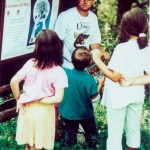 The Valley of Colours: leaf peeping in the Wizard’s Garden
The Valley of Colours: leaf peeping in the Wizard’s Garden
In the small natural oasis and outdoor ecology laboratory on the farm; after passing an austere wooden gate you arrive at the Great Tree, a century-old oak tree; here young guests are introduced to the discipline of leaf peeping (observation of nature through the keyhole) and they discover, through stories, myths and legends, the most hidden secrets of the Apennine nature going along three different loop trails:
- the round dance of Elves
- the fairy circle
- the dwarf ring.
until the grand finale: the path between the crowns, a series of bridges suspended over a small lake surrounded by oaks, willows and poplars, to be taken safely using mountaineering harnesses and helmets.


